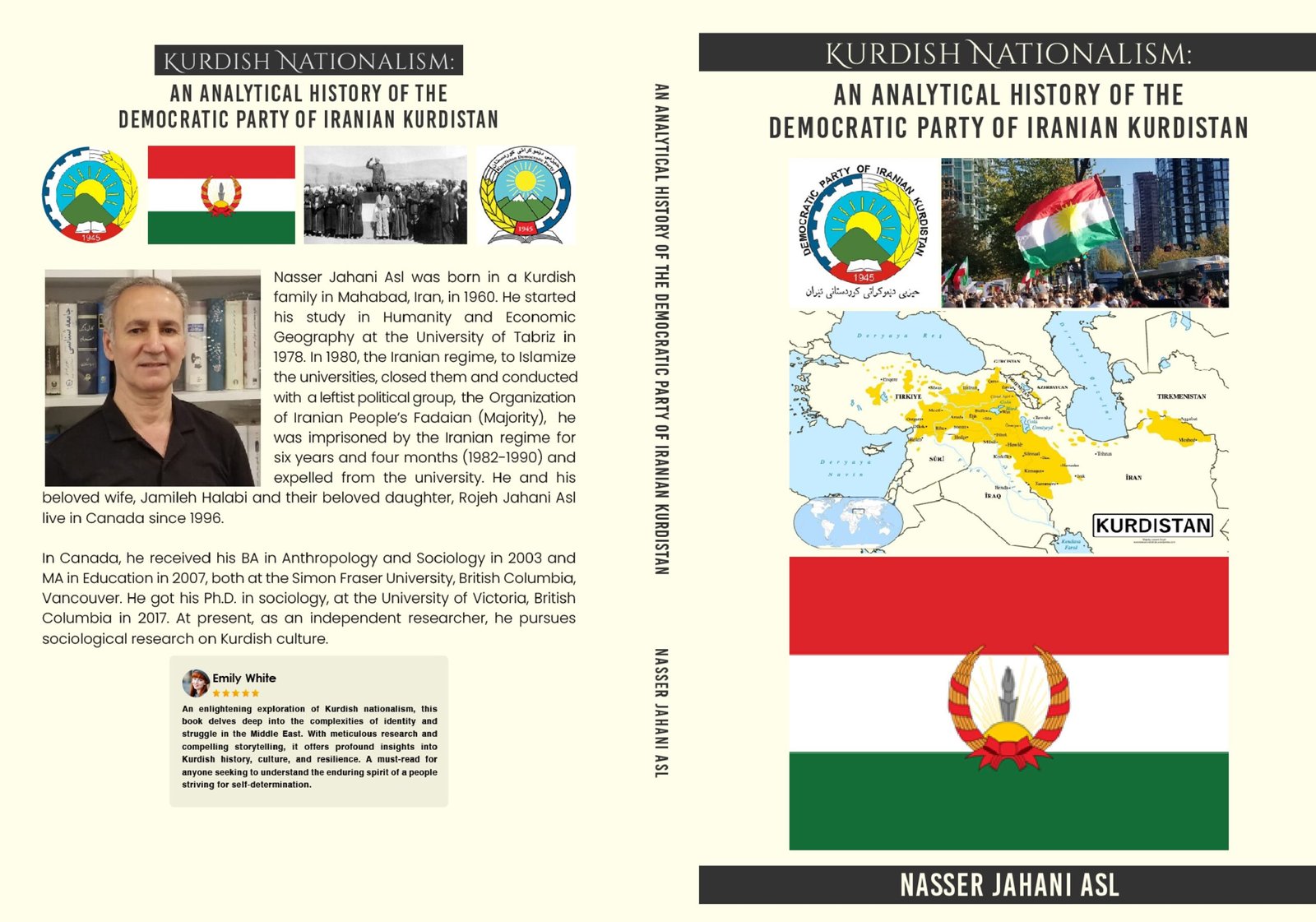
About The Author
NASSER JAHANI ASL
Nasser Jahani Asl was born in a Kurdish family in Mahabad, Iran, in 1960. He started his study in Humanity and Economic Geography at the University of Tabriz in 1978. In 1980, the Iranian regime, to Islamize the universities, closed them and conducted the “Cultural Revolution”. Due to his affiliation with a leftist political group, the Organization of Iranian People’s Fadaian (Majority), he was imprisoned by the Iranian regime for six years and four months (1982-1990) and expelled from the university. He and his beloved wife, Jamileh Halabi and their beloved daughter, Rojeh Jahani Asl live in Canada since 1996.
In Canada, he received his BA in Anthropology and Sociology in 2003 and MA in Education in 2007, both at the Simon Fraser University, British Columbia, Vancouver. He got his Ph.D. in sociology, at the University of Victoria, British Columbia in 2017. At present, as an independent researcher, he pursues sociological research on Kurdish culture.



